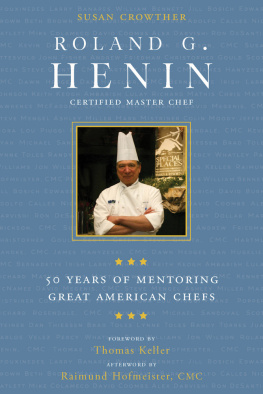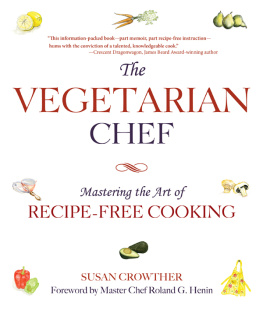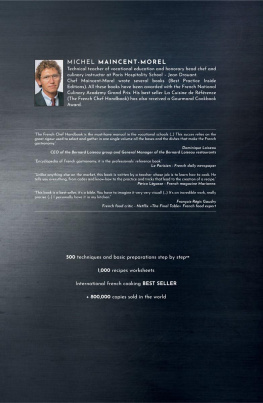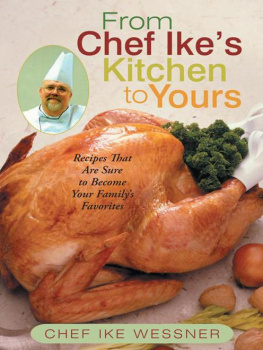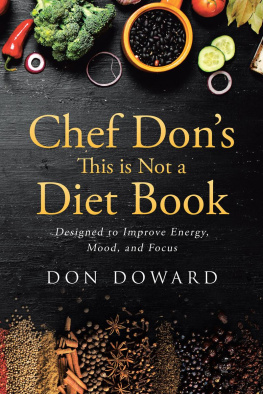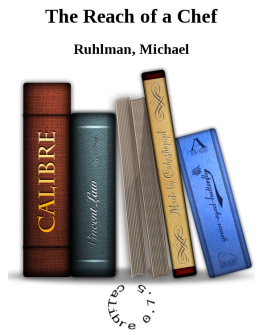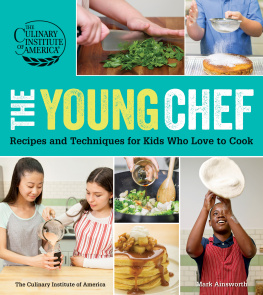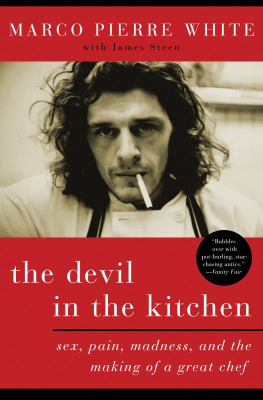Also by Susan Crowther
The No Recipe Cookbook
The Vegetarian Chef
Lifestyles for Learning
Copyright 2017 by Susan Crowther
Foreword copyright 2017 by Thomas Keller
Afterword copyright 2017 by Raimund Hofmeister, CMC
All Rights Reserved. No part of this book may be reproduced in any manner without the express written consent of the publisher, except in the case of brief excerpts in critical reviews or articles. All inquiries should be addressed to Skyhorse Publishing, 307 West 36th Street, 11th Floor, New York, NY 10018.
Skyhorse Publishing books may be purchased in bulk at special discounts for sales promotion, corporate gifts, fund-raising, or educational purposes. Special editions can also be created to specifications. For details, contact the Special Sales Department, Skyhorse Publishing, 307 West 36th Street, 11th Floor, New York, NY 10018 or .
www.skyhorsepublishing.com
10 9 8 7 6 5 4 3 2 1
Library of Congress Cataloging-in-Publication Data is available on file.
ISBN: 978-1-51072-800-4
eISBN: 978-1-51072-801-1
Cover design by Jenny Zemanek
Cover photo by Tom McCann
Printed in the United States of America
To Bill Tyler, for giving me my first dishwashing job.
To Chef Pierre Latuberne, in gratitude.
Thank you to the following chefs and colleagues of Roland Henin who contributed to the creation of this project:
Peter Afouxinedes
Larry Banares
William Bennett
Jill Bosich, CEC
Beth Brown, PCII
Edward Brown, AOS
Mary Burich
David Burke, AOS
Adolfo Calles, CCC
Nick Catlett, CEC
Mike Colameco, AOS
David Coombs
Alex Darvishi
Ron DeSantis, CMC
Kevin Doherty, PCIII, CEC
Jerry Dollar
Mark Erickson, CMC
Susan Ettesvold, CEPC
John Fisher
Andrew Friedman
Steve Giunta, CMC
Christopher Gould
Scott Green
Hartmut Handke, CMC
James Hanyzeski, CMC
Dawn Hedges, CSC
Raimund Hofmeister, CMC
Dan Hugelier, CMC
Larry Johnson, CEC
David Kellaway, CMC
Thomas Keller
Keith Keogh
Ambarish Lulay
Chris Matta
Lawrence McFadden, CMC
Kenneth McNamee
David Megenis, CMC
Steve Mengel
Ferdinand Metz, CMC
Ashley Miller
Mark Mistriner
Colin Moody, PCII, CEC
Jeffrey Mora
Lou Piuggi
Franz Popperl
Richard Rosendale, CMC
Kevin Ryan
Scott Steiner
Dan Thiessen
Brad Toles
Lynne Toles
Randy Torres, PCIII, CEC
Juan Carlos Velez
Percy Whatley, PCIII, CEC
Brian Williams
Pam Williams
Jon Wilson, CEC
Contents
The Interviews
The Executive Chef
Thomas Keller
Steve Mengel
Jerry Dollar
The General: Culinary Institute of America
David Burke
Mike Colameco
Edward Brown
Lou Piuggi
Pamela Williams
The Coach: Team USA, Culinary Olympics
Larry Banares
Jeffrey Mora
Franz Popperl
Keith Keogh
Kevin L. Ryan
Kevin Doherty
Andrew Friedman
The Director: The Art Institute of Seattle
Dan Thiessen
John Fisher
Brian Williams
The Judge: American Culinary Federation
Jill Bosich
Susan Ettesvold
Randy Torres
The Corporate Chef: Delaware North
Percy Whatley
William Bennett
Ambarish Lulay
Colin Moody
Mary Burich
Larry Johnson
Scott Green
Jon Wilson
Chris Gould
Beth Brown
Ashley Miller
Dawn Hedges; Nick Catlett; Juan Carlos Valdez; Aldofo Calles
Certified Master Chefs
Dan Hugelier
Steve Giunta
Raimund Hofmeister
Ron DeSantis
Rich Rosendale
Foreword
by Thomas Keller
In all professions without doubt, but certainly in cooking one is a student all his life.
Fernand Point
L ike a lot of people in our profession, I began my culinary education at a young age, and Ive had many teachers along the way. But theres only one teacher I call my mentor, the person who has done more than any other to make me the chef I am today.
I first crossed paths with Master Chef Roland G. Henin in the summer of 1977. I was twenty-one and working as a cook at the Dunes Club in Narragansett, Rhode Island. Roland was executive chef. At that point in my life, what appealed to me most about cooking was the physicality of it. It required strength, stamina, and quickness. It was an exhilarating challenge, like being part of a sports team. You were always competing, either with your fellow cooks or with the orders. Very often, you were up against both.
Then, as now, I was an energetic cook. But I lacked direction. There was no broader purpose to what I did, no overarching vision. With a few words from Chef Henin, that all changed. We were in the kitchen together when Chef Henin summed it up: There is a reason that cooks cook. And that reason is to nurture people. That observation sounds so fundamental to me now. But at the time, it struck me with the force of a revelation. Yes, cooking was physical. But it was also emotional, a conduit for human connection. We cook to nurture. To make people happy. To create lasting memories around a meal. Chef Henins words became my guiding principle, the foundation of everything I try to do.
Of course, there were many other lessons from that summer. I was the low man in the kitchen hierarchy, often tasked with the rudiments of preparing staff meals. What Chef Henin taught me about French technique could nearly fill a textbook. As patient as he was stern, he encouraged repetition and a keen attention to detail, the better to gain mastery over all the steps. To this day, I wouldnt say Ive perfected hollandaiseor anything else in the kitchenbecause there is no such thing as perfection. But you can strive for perfection through perseverance, and find joy in the process. Chef Henin helped me discover that joy.
Chef Henin also gave me my second cookbook (my mother gave me my first), Ma Gastronomie by Fernand Point, the late, great chef of La Pyramide in Vienne, France. It was not so much a recipe book as a book about a man and his commitment to a restaurant: a deep, enriching book about the life of a chef. Its a book that I still use and give to all young cooks.
In 2008, when I was fortunate enough to contribute a forward to a new edition of Ma Gastronomie , I asked Chef Henin what had prompted him to give me a copy all those years ago. He said that there were times when hed watch me in the kitchen and notice how content I seemed, that regardless of whether I was having a good day or a bad day, it looked like I belonged. That sense of belonging has carried me through many chapters of my life, and Im grateful to Chef Henin for that gift.
I could go on. My relationship with Chef Henin is deeply personal. But I am far from the only person in the culinary world who owes him a debt of gratitude. Chef Henins influence is too vast to measure. But in the wonderful book you now hold in your hands, Susan Crowther gives us a sense of its dimension. Like me, Susan learned at Chef Henins side. And here she offers intimate accounts of fifty others who did the same. Each chapter helps round out a portrait of the man Im proud to call my mentor and the many hats he has worn through the yearsfrom his tenure as an instructor at the Culinary Institute of America (where he was fondly known as the General) to his role as a coach for the American team at the 2009 Bocuse dOr, an international culinary competition, the significance of which is hard to overstate.

